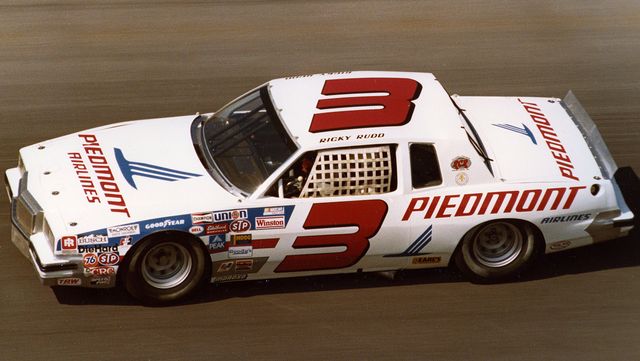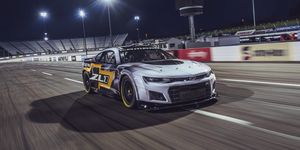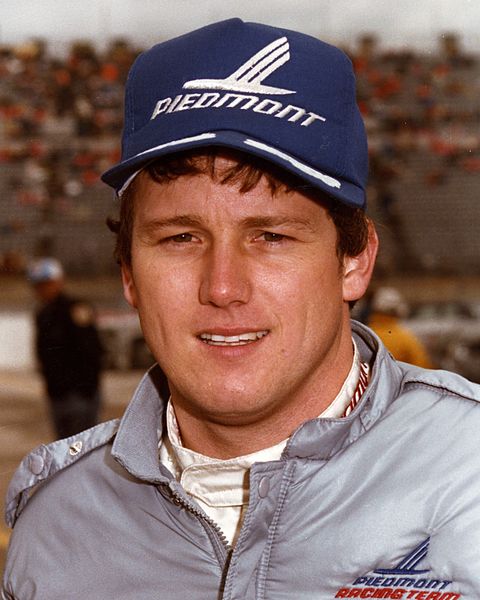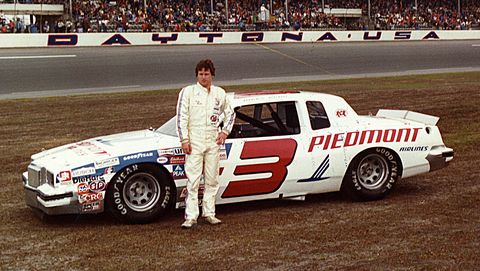If you truly know your NASCAR history, you’ll find this two-part trivia question ridiculously easy. If you don’t, it might take some research. Feel free to call a friend.
Question 1: Who was the last driver to go directly into Cup racing without coming up through the ranks? No weekly short tracks. No NASCAR feeder series. No rival stock car series. No international schooling. This driver went feet-first into the deep end, debuting in a points-paying Cup race on a 1-mile track.
Question 1-A: Since 1969, nine drivers have given Richard Childress Racing 109 Cup victories. Who gave team owner Richard Childress his first? Hint: it’s the same guy who began Cup racing with zero experience.
Think about it for a moment while we offer some clues:
• The first victory for RCR was also the first of 23 for the young driver … the long-awaited checkered came on a bare, ugly, dusty, wind-blown track as far from stock car country as could be … the winning team’s crew chief was a Philadelphian who later achieved greatness with another driver … the team’s sponsor was a regional airline that merged with USAir (now US Airways) in 1989.
Younger fans might be stumped, but ol’ gray-beards would have no trouble correctly naming Ricky Rudd as this week’s “first victories” subject.
The first of Rudd’s 906 Cup starts was his very first car race … unthinkable by today’s standards. He grew up in Tidewater, Virginia, racing go-karts, BMX, and motocross, and was just 18 when owner Bill Champion took him to North Carolina Motor Speedway near Rockingham in March 1975. Looking like a junior high freshman, Rudd started 26th in the Carolina 500 and was lapped an astonishing 56 times, but still finished 11th and earned $2,000. As unlikely as it seemed that Sunday afternoon, a career was born.
Nine winless seasons and 160 starts later, in June 1983, Rudd dominated the Budweiser 400 at Riverside Raceway in California. His first career victory was the first for Childress, crew chief Kirk Shelmerdine, and the No. 3 Piedmont Airlines Chevrolet. He started fourth, led four times for 57 of 95 laps—including the final 41—in easily handling Bill Elliott, Harry Gant, Dale Earnhardt, and Dick Brooks. The margin of victory was seven seconds and the winner’s payout was $24,530.
“It was hard to believe I was finally able to win,” Rudd, a youngish-looking 64 years old, recently told Autoweek. “I’d been close a few times, with poles and good runs and strong finishes with other teams. But to have it all come together that afternoon … it was like an impossible feat finally happening. I didn’t have any engines problems, the car was excellent, and pit stops were good. I couldn’t have asked for anything more.
“Remember… I’d had a steep learning curve in those big, heavy stock cars because I’d never done any short-track racing. It took me longer to figure out how to win, to figure out what was going on. Richard helped by taking me to a (non-NASCAR) race in Texas the winter before the ’83 season. He wanted to instill in me what it took to win. There were some heavy-hitters there, but we won, and that really helped my confidence.”
The Riverside victory came in the sixth of his 16 visits to the 2.620-mile road course near Los Angeles. He also won there for Bud Moore in 1985 and had seven other top-10 finishes at the track. He was a top-10 qualifier 14 times there, including the final 12 before NASCAR left 1988. All told, six of Rudd’s 23 career victories came on road races: two each at Riverside, Sears Point, and Watkins Glen.
“I always looked forward to going out and racing on the West Coast,” he said from his lakeside home near Charlotte. “To me, that meant I had sort of reached the big time. Not that racing in the Southeast wasn’t a big deal, but California was hot-rod county and I enjoyed being out there. It seemed special to go across country to race.”
Rudd struggled early, spending the 1975-1980 seasons on teams with limited resources. But he was impressive enough to earn a season with DiGard, then two with RCR, four with Bud Moore, two with Kenny Bernstein, and four with Rick Hendrick. He fielded his own Rudd Performance Motorsports team for 1994-1999, winning the 1997 Brickyard 400.
He closed his 33-year career with three seasons each with Robert Yates and the Wood brothers, and a final season (2007) back at Yates after sitting out 2006. His career record: 906 starts, 29 poles, 23 victories, and 16 consecutive winning seasons. Behind those numbers: 788 consecutive starts (second all-time to Jeff Gordon’s 797); 19 top-10 points finishes (including second to Earnhardt in 1991); victories at 14 venues; victories for six owners; and 1977 Rookie of the Year.
“Riverside was important, but Indy was my biggest win,” Rudd said. (It’s the only trophy displayed in his home; the others are stored in the attic). “Riverside and later that season at Martinsville sort of sealed things for the future. I had started to wonder if I was somebody who couldn’t close the deal. You know, could qualify and run strong, but just couldn’t win. It was a great day because after getting a taste of winning, the rest of them came easier.”
Rudd was among five candidates for the Class of 2020 into the NASCAR Hall of Fame. Alas, that was the year the Hall took only two “modern era” drivers instead of the usual five and one “veteran.” Dale Earnhardt Jr. and Mike Stefanik were the moderns, and Red Farmer the veteran. Rudd will remain on the ballot for the foreseeable future, but may be forgotten as higher-profile drivers retire and become eligible.
We can only hope that cooler heads prevail.
Source: Read Full Article




